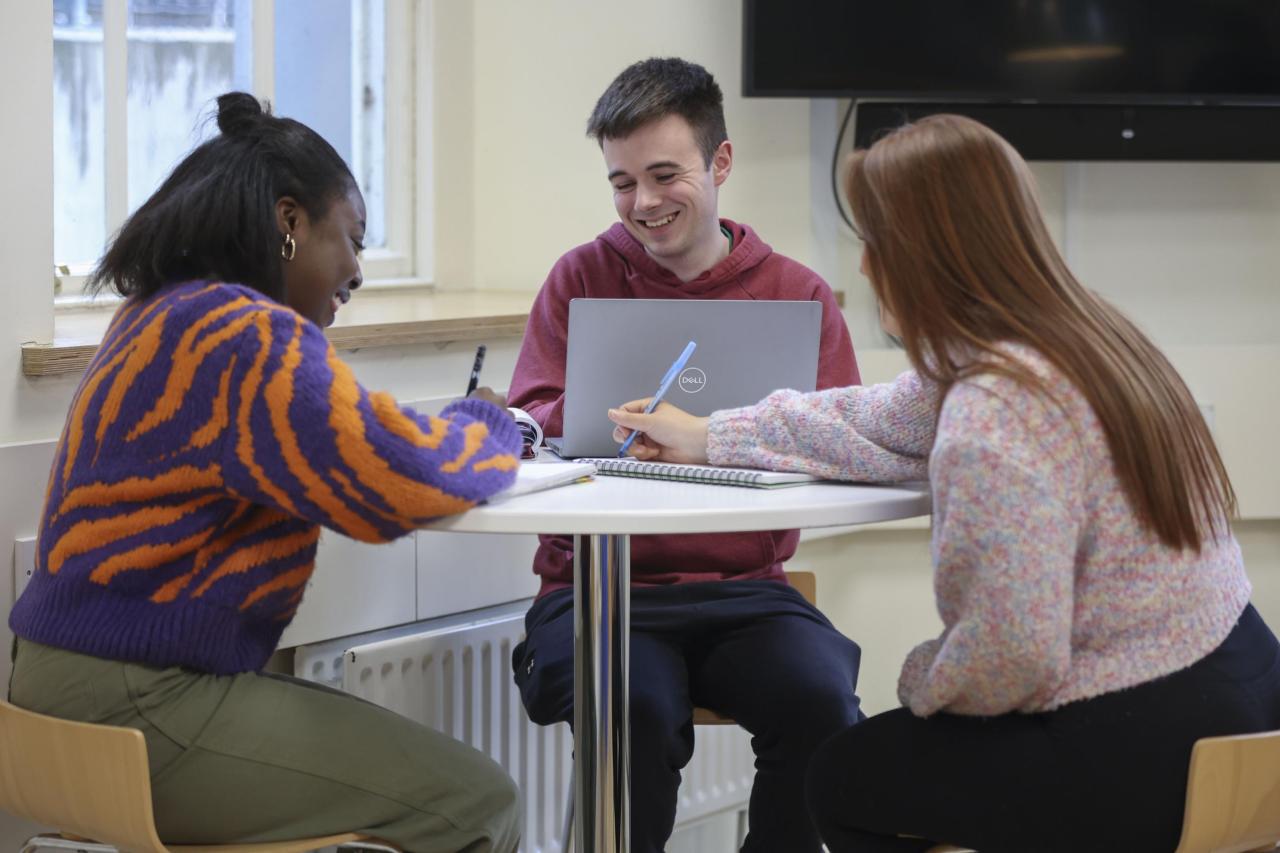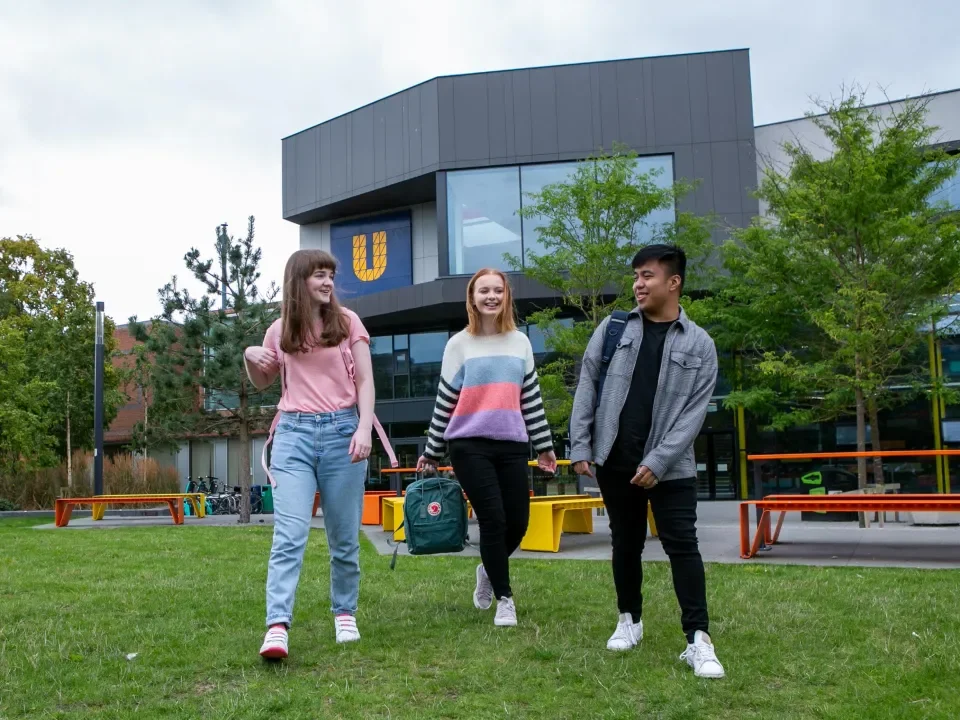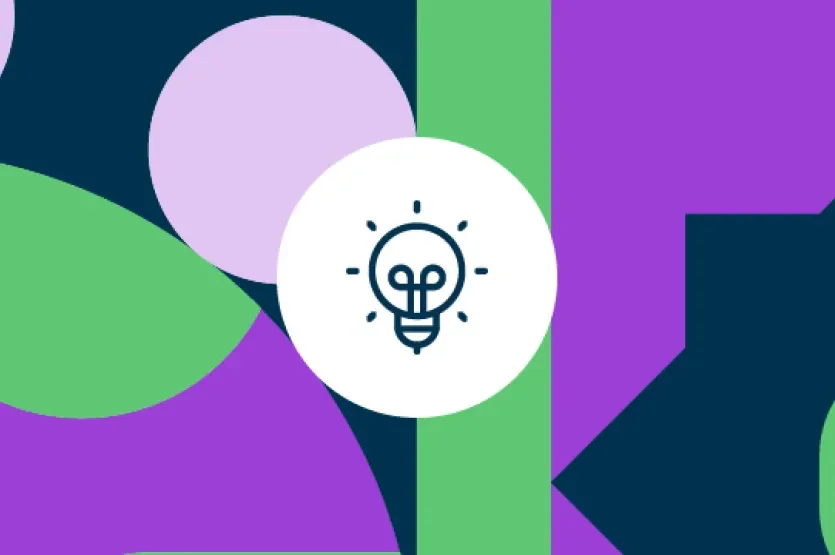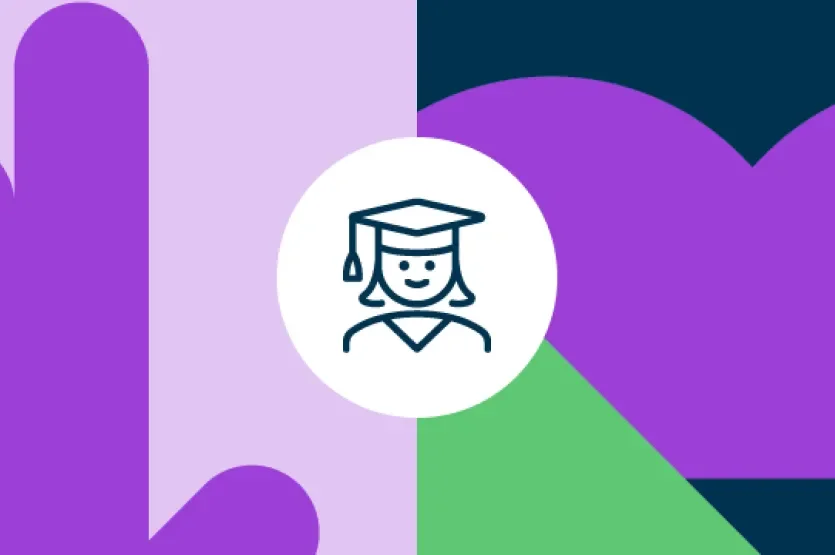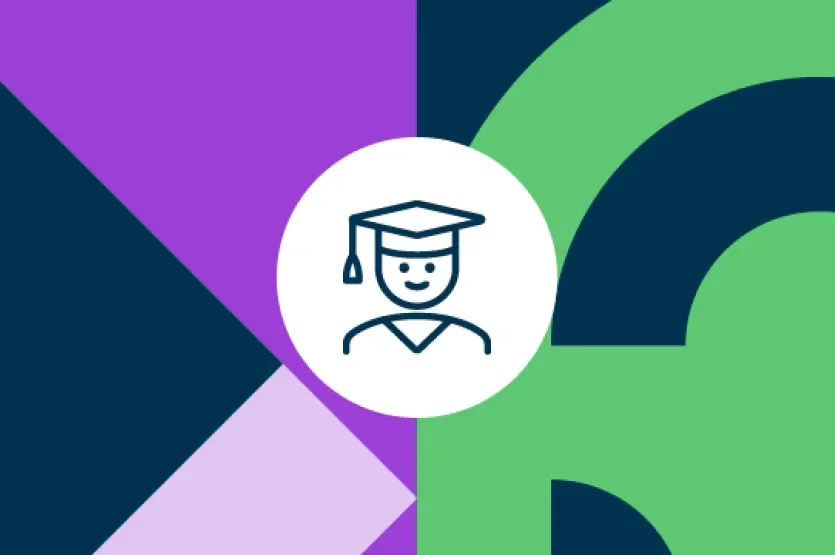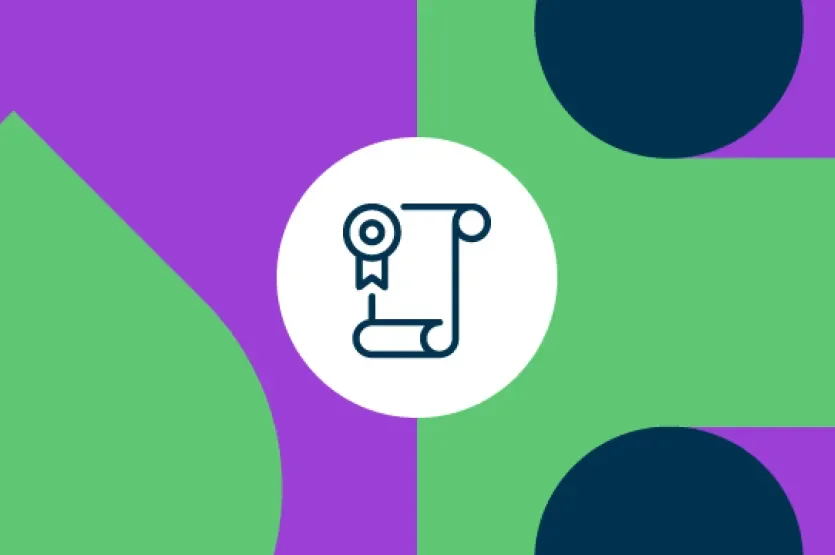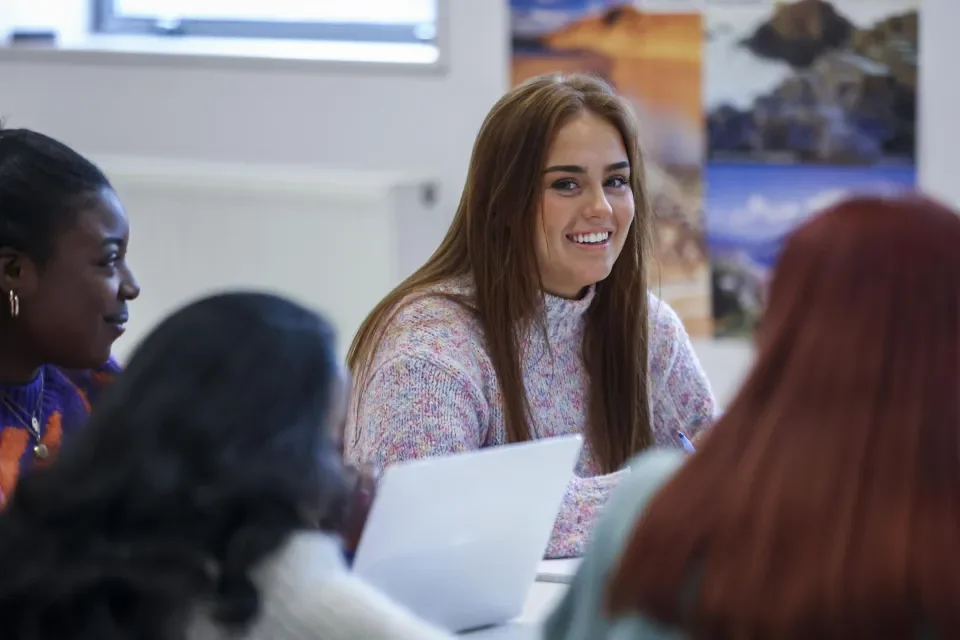Overview
This degree qualifies you to teach Religious Education and History to Honours Leaving Certificate Level. The course includes a variety of interesting core and optional topics. Throughout the programme, there is an emphasis on teamwork, leadership, communication and creativity - skills that will serve you well in a teaching career and can also transfer to a number of other professions.
This programme prepares you for the modern-day teaching environment. You’ll be encouraged to develop the skills needed to work in classrooms of cultural and religious diversity. You’ll also gain valuable and extensive teaching experience, both within the university and in school-based placements.
Why DCU
Careers & Further Options
Careers
Your degree will be recognised by the Teaching Council of Ireland, allowing you to register as a Newly Qualified Teacher (NQT) and apply immediately for employment in second-level schools as a teacher of Religious Education and History.
Graduates work in Post-Primary Schools, Government Departments, International Development Agencies, Culture and Heritage, the Media, and the Private Sector
- Culture and Heritage
- Government Departments
- International Development Agencies
- Media
- Post Primary Schools
- Private Sector
DCU graduates are highly sought after by employers. Our Graduates work in environments ranging from large multinationals to SMEs, family businesses and start-ups across every sector.
DCU Careers Service has a number of learning and development initiatives in place for our students, giving them the skills they need for a successful career path.
Entry Requirements
There are no additional entry requirements for this programme apart from the general entry requirements for admission to the university.
There are no additional entry requirements for this programme apart from the general entry requirements for admission to the university.
There are no additional entry requirements for this programme apart from the general entry requirements for admission to the university.
Please visit our Admissions webpage for details on course requirements or how to apply to DCU.
Please visit our QQI FET webpage for details on DCU courses, open days, campus tours or school visits.
To apply to DCU, please visit www.cao.ie.
Mature entry is a competitive process. Applicants must demonstrate:
- a genuine interest in the programme(s) they are applying for
- academic experience and competency in their chosen field of study
- an ability to engage and succeed on the programme
All applicants must complete a statement of interest to be considered for the mature application route.
For further guidance on the mature application process please see the CAO Website
No Entry Path
International candidates are expected to have educational qualifications of a standard equivalent to those outlined above. In addition, where such candidates are non-native speakers of the English language they must satisfy the university of their competency in the English language. Click here for further information on international applications.
Course Structure
Throughout the course you’ll cover four integrated areas:
We offer a student-friendly, supportive, open, dynamic and practical approach to the study of education. The diverse, exciting, engaging, and challenging study of education and religious education is reflected in the modules on offer.
One of the most exciting and rewarding elements of the course is our hands-on approach to school placement. Over the four years of the course, you’ll have an opportunity to gain valuable and extensive experience within a range of teaching and learning environments, including engagement in observation of practice, peer-teaching, team-teaching and school-based placement.
These elements provide a strong foundation for teaching Religious Education in second level schools and meet the subject criteria required by the Teaching Council. The specific subjects include ethics, philosophy, scripture, systematic theology and world religions. You’ll be encouraged to critically engage with a wide range of topics and develop the skills to work in contexts of cultural and religious diversity.
Studying English literature provides you with the skills to think creatively and intelligently about the fundamental roles played by storytelling and song-making in civilisation. You’ll engage with a wide range of literature and become familiar with the vital characteristics and contexts of drama, poetry, film and fiction. You’ll study style and substance, what literature describes, as well as how it does it. Our priority is developing your critical independence, enabling you to read and redirect on literary texts across traditions from Greek tragedy to Breaking Bad, Jane Austen to Father Ted and Shakespeare to Kanye West.
Fees and Funding
Fees
How To Apply
Applicants presenting EU School Leaving/FETAC Level 5 examinations: Apply through the Central Applications Office (CAO) by 1st February or 1st May
To apply for this programme:
Candidates should apply directly here. Here's a quick step by step guide if you need help with your application.
Please provide
- Academic Transcripts for each and every year of study with English translation, if applicable.
- If applicable, provide evidence of competence in the English language as per DCU entry requirements.
Applications are accepted on an ongoing basis up to 1st July. All Non-EU candidates are advised to apply early, as places are limited.
All mature applicants apply through the CAO by 1st February. For further information and for special application procedures for mature students, please click here
After completing the CAO application, applicants may be invited to an interview.
Please see Application Procedures or E-mail ugadmissions@dcu.ie.
Candidates required to apply through the CAO can apply online at www.cao.ie
Life On Campus
At DCU, our students can expect a unique campus experience. We are known for our excellent teaching and learning facilities, our active clubs and societies, and our great social and sporting facilities. All this makes DCU an exciting place to be.
DCU has three academic campuses; Glasnevin, St. Patrick’s and All Hallows (both in Drumcondra), all close to Dublin City centre.
They can be reached by public transport, Dublin Bus and Bus Éireann, with our Drumcondra campuses a ten minute walk from Drumcondra Train Station. Glasnevin is a 20 minute walk from St Patrick’s and All Hallows. They are also linked by Dublin Bus.
Each campus has a library (O’Reilly, Cregan and Woodlock Hall), study spaces, restaurants, and on-campus residencies. There are sports facilities on Glasnevin and St. Patrick’s, and there is a dedicated sports campus, St Claire’s, located near Glasnevin on the Ballymun Road.
DCU’s 19,000 students have access to exceptional teaching and learning facilities across our three academic campuses.
These include modern learning theatres, research centres, a new media and TV studio, radio/podcast studios, computer suites and advanced labs in the areas of Languages, Engineering, Physics, Chemistry and Biotechnology, as well as a Sports Performance centre and a training hospital ward. In 2021, we opened our first virtual reality ‘Leadership Lab’, which is located in our Business School.
We continue to improve and update our facilities. For example, construction of a new world-class STEM facility is underway on the Glasnevin campus. With capacity for an extra 3,000 STEM students, this facility will advance DCU’s international reputation for excellence in science and health, computing and engineering disciplines.
Studying in DCU isn’t just about course work. The university is rich in student life and activities.
There are more than 140 clubs and societies for students in DCU, with ‘Clubs & Socs’ days taking place on both the Glasnevin and Drumcondra campuses at the start of the academic year. They span everything from rugby to rock climbing, anime to jazz.
For many students, sport is an important part of the DCU experience. DCU’s Sports Complex boasts a 25 metre swimming pool, fitness centre gym, all-weather pitches and squash courts, as well as soccer, GAA and rugby pitches. DCU Dóchas Éireann, the university’s GAA club, is the largest third level Gaelic Games club in the country. Meanwhile, DCU Athletics has been Ireland’s highest achieving university club for many years. And DCU has dozens of other clubs to get involved in, from Archery to Weightlifting.
The Glasnevin campus is home to our purpose built, state-of-the-art student centre, The U, which serves the needs of a rapidly growing student body. Here, you will find the Student Leadership and Lifeskills Centre, performing arts and cultural spaces for students and the wider community, and the Entrepreneurship and Innovation Hub. Also located on our Glasnevin campus is The Helix, our renowned performing arts centre.
On our St Patrick’s campus, we have the Java Student Hub, a vibrant, warm and welcoming space where students can meet for coffee, play music, use the projector to watch events, or just relax. The walls of the Java Hub were designed based on the cultural history of St Patrick’s Campus, including the special references to the notable sporting history and history of the arts.
We have a number of academic, professional and social supports for students.
Student Advice & Learning Skills Centre - Offers a wide range of supports and services to students and advice
The Writing Centre - drop-in writing workshops for students through the academic year
Maths Learning Centre - provides maths support for students of all ability levels with maths modules
Student Learning - facilitate the transition from passive to active learning for students at DCU, by teaching study skills, nurturing critical thinking and building student confidence.
Careers work with students to help them on their professional journey into graduate employment.
Our student support team offers a comprehensive support programme, helping students make that all important transition into university life and focusing on building confidence and skills which are key to success at third level.
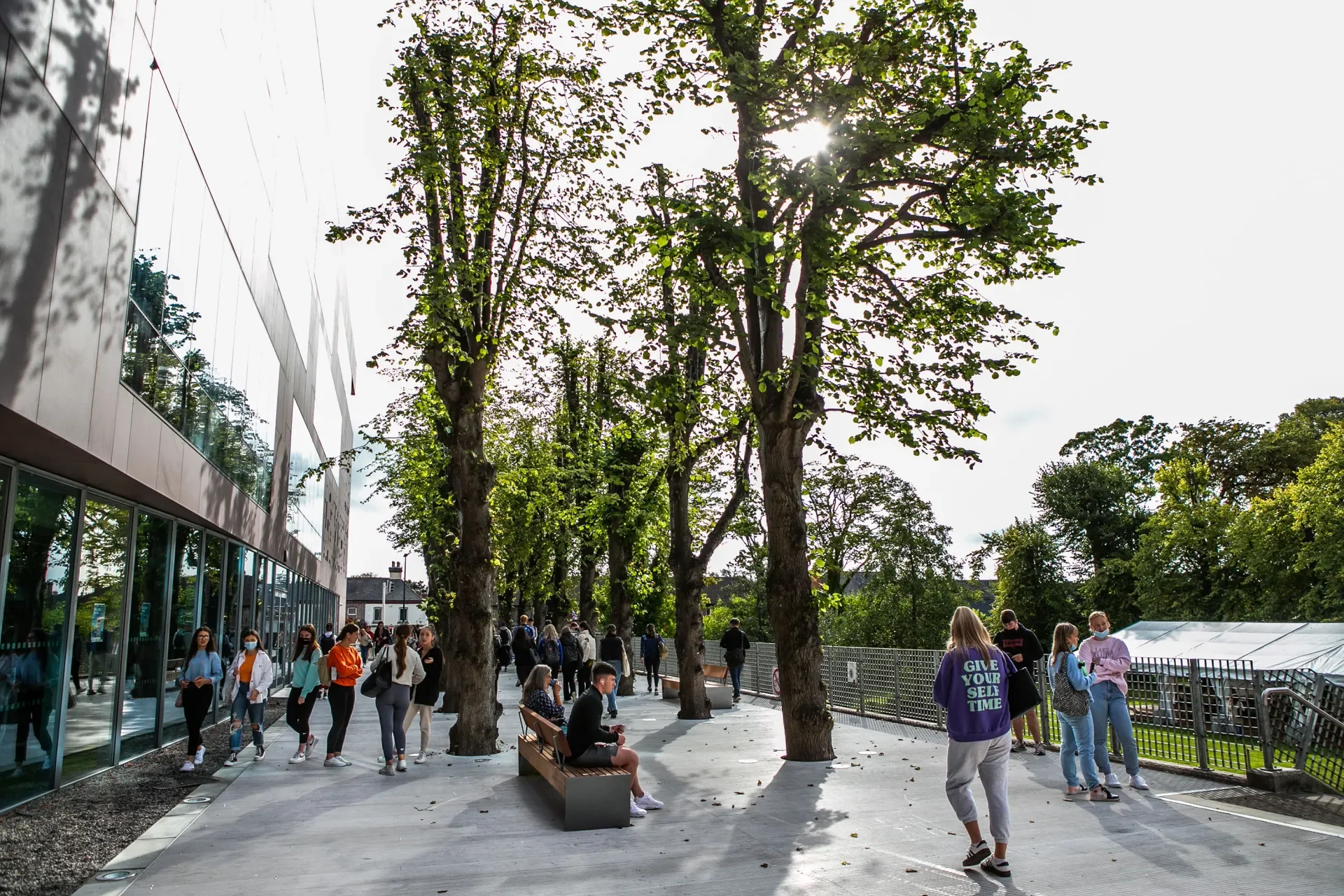
DCU St Patrick's Campus
FAQs
I am interested in studying Religious Education and would like to teach it at post primary level. What other subjects can I study along with Religious Education?
DCU Institute of Education offers three different combinations for those who wish to teach Religious Education and another subject at post-primary level. These courses are fully recognised by the Teaching Council of Ireland, and upon graduation, you can register as a Newly Qualified Teacher (NQT) and apply immediately for employment in post-primary schools:
- Bachelor of Religious Education and English (DC010)
- Bachelor of Religious Education and History (DC011)
- Bachelor of Religious Education and Music (DC012)*
*DC012: In addition to the general entry requirements for admission to the University, the following entry requirements apply: H4 in Music or equivalent (this requirement may be waived by the Head of Music). DC012 is a restricted entry course. Applicants must apply through CAO by 1 February. Late applications cannot be accepted. Applicants must take music aural and performance tests. For details, please visit: https://www.dcu.ie/registry/dc012-music-test-information.shtml
If you have any questions about Music on the Bachelor of Religious Education and Music programme (DC012), please contact Dr Seán Doherty: sean.doherty@dcu.ie directly.
What courses are offered by the DCU Institute of Education?
DCU Institute of Education brings together students of education and provides a rich menu of undergraduate courses across all sectors from early childhood, to primary and post-primary and further and higher education. We offer a range of taught and research postgraduate courses at doctoral, masters, diploma and certificate level and have a distinguished record in providing continuing professional development.
Is there Garda vetting for students who study DCU Institute of Education courses?
Garda vetting is required for all students who have unsupervised access to children and vulnerable adults as part of their studies at DCU. Applicants must successfully pass the Garda vetting process in order to complete the registration process.
What are the potential teaching pathways for primary, post-primary and further education and training offered by DCU?
Primary Teaching Pathways
Undergraduate*
Postgraduate**
- Professional Master of Education (Primary Teaching) - DC970
* Please ensure that you consult minimum entry requirements and CAO points for all undergraduate programmes
** Please ensure that you consult minimum entry requirements for all postgraduate programmes
Post-Primary Teaching Pathways
Undergraduate*
- Bachelor of Religious Education & English or History or Music - DC010 | DC011 | DC012
- Bachelor of Education in Gaeilge and French or German or Spanish - DC013
- Bachelor of Education in Technology, Engineering and Graphics - DC015
- Bachelor of Science (Hons) in Science Education - DC203
- Bachelor of Science (Hons) in Physical Education with Biology - DC205
- Bachelor of Science in Physical Education with Mathematics - DC206
Postgraduate**
- Professional Master of Education (Post-Primary Teaching) - DC905
* Please ensure that you consult minimum entry requirements and CAO points for all undergraduate programmes
** Please ensure that you consult minimum entry requirements for all postgraduate programmes
Further Education and Training Teaching Pathways
Undergraduate*
- BSc (Hons) in Education and Training (Further, Adult and Continuing Education) - DC235
* Please ensure that you consult minimum entry requirements and CAO points for all undergraduate programmes

